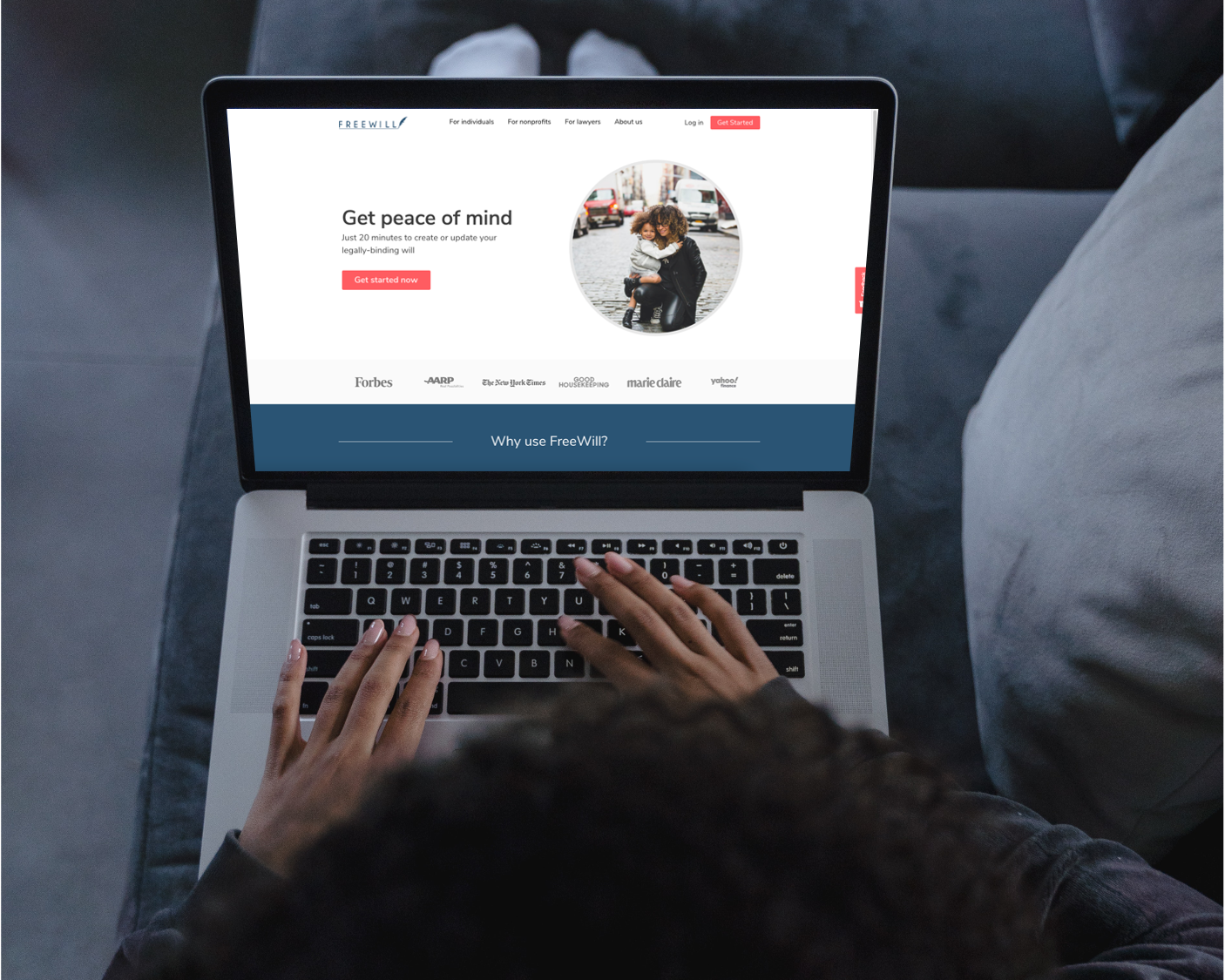What is a do-it-yourself will?
A DIY will is exactly what it sounds like: It’s a last will and testament that you write yourself, as opposed to having an estate attorney write it for you. Those who make a DIY will use a will template, online resource, or will kit to simplify the process.
For many, making a DIY will is the easiest, most cost-effective way to make a will. But there are also some drawbacks to making a will without a lawyer. Below are the pros and cons of a do-it-yourself will.
Pros of a do-it-yourself will
1. It's easy and free to make.
Paying a lawyer to help you write your will can be time-consuming and expensive. With today’s technology, it’s easier than ever to access high-quality will templates and forms that help you protect your loved ones and make sure they receive your property. There are several low-cost or free options on the market, including FreeWill, that walk you through the process step-by-step. This eliminates the burden on you to figure out what to write in your will.
2. It's fast.
Many people think making a will is time-consuming — and if you use a lawyer to create your will, it very well could be. But online resources are often much quicker, and give the will-writer the flexibility to write their will on their own time. It takes willmakers on FreeWill an average of just 17 minutes to fill out their will forms. That’s shorter than one episode of your favorite Netflix show!
Even if you use a different online platform to make your will, it takes far less time than you might think to get it done.
3. It's sufficient coverage for most people.
If you have an uncomplicated estate — and most Americans do — a do-it-yourself will can function as your last will and testament. A DIY will that’s signed and witnessed is as valid as one prepared by a lawyer.
If you have a more complicated estate, you can still use a DIY will site to prep your will documents before taking them to a lawyer. Having this starting point to begin your discussions with your attorney can save you time and money.
4. It's easy to update.
Estate attorneys recommend updating your will every five years, or whenever you have a qualifying event (like moving states or having children). Will documents made with a lawyer require the lawyer’s help to update, which costs you money. If you make a will through an online platform like FreeWill, it’s easy and free to update whenever one of these big life changes happen.
Cons of a do-it-yourself will
1. They can be set up incorrectly.
If a will-writer doesn’t use the correct legal language in their will, it can be ruled invalid. This means your estate would be handled intestate — as if you had no will — and the court would decide how to distribute your assets. This could be confusing and stressful for your grieving loved ones.
To avoid these errors, estate attorneys recommend not writing your will by hand (called a handwritten or holographic will). This is because holographic wills aren’t accepted in every state, and their validity is often challenged. Using a will template or online platform can help you avoid these problems. And if you ever have any questions about your will, you can always consult an estate attorney.
2. They need to be witnessed to be legal.
All wills need to be witnessed to be considered legally valid. This is as true for wills drawn up by lawyers as it is for DIY wills created online. But people writing their wills on their own may be unaware of their state’s witnessing and notary requirements. Not having enough or the right kind of witnesses to your will could lead to it being contested in court.
Witnessing laws vary by state, so make sure you follow the rules for the state you live in. If you use FreeWill to make your will, we provide instructions for how to make your will legally-valid based on your state of residence.
Until your will is signed by witnesses, it isn’t considered a valid legal document.
3. They usually won't be enough for large or complicated estates.
A do-it-yourself will might not cover the needs of someone who has a complicated estate. This could include someone who:
- Owns a business
- Owns property in multiple states
- Has complicated family dynamics (for example, blended families or estranged children)
- Has significant assets (for example, multiple investment accounts) and wants to reduce estate taxes
If this sounds like you, establishing a trust or working with an estate attorney might be a better option to ensure all your assets are accounted for.
4. There’s a lot of variation across online will providers.
There are several providers, and they all offer different services at different price points. This can make the process confusing for people who want to make their will online but don’t know where to start.
Some online will providers promise “free” wills that require you to sit through phone calls or life insurance pitches. Before you give your information to an online will provider, consider checking a consumer review website like Trustpilot to see if the company is reliable.
FreeWill is one of the truly free options on the market. Thanks to the support of our nonprofit partners, our online will-maker is always completely free, and we never sell your information.
Should you make a do-it-yourself will?
If you have a simple estate, making a DIY will can be an easy, affordable way to protect your legacy and your loved ones. Whatever you choose to do, making a will is extremely important and shouldn’t be put off.
If you’re ready, you can make your will online through FreeWill.
Not quite ready to jump in? Here’s everything you need to know about making a will.
Make your free estate plan today

Make your free advance healthcare directive

Make your free durable power of attorney

Make a stock donation today

Make your free revocable living trust










